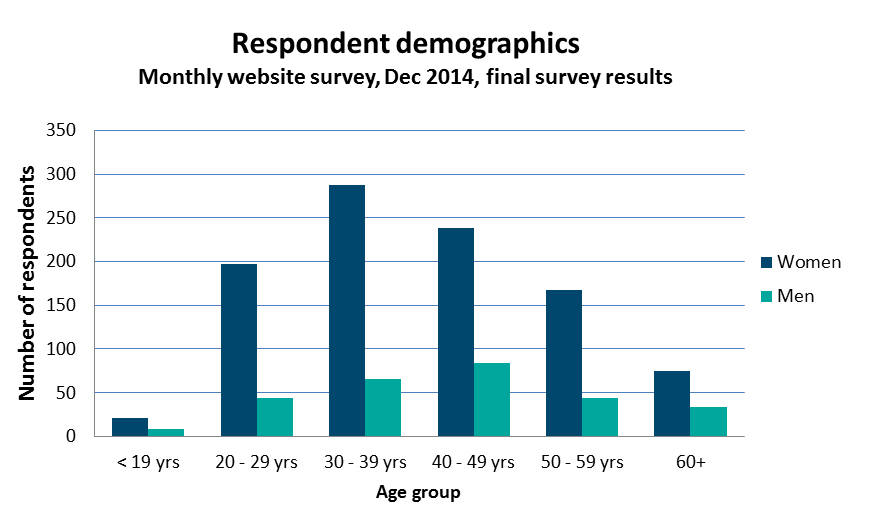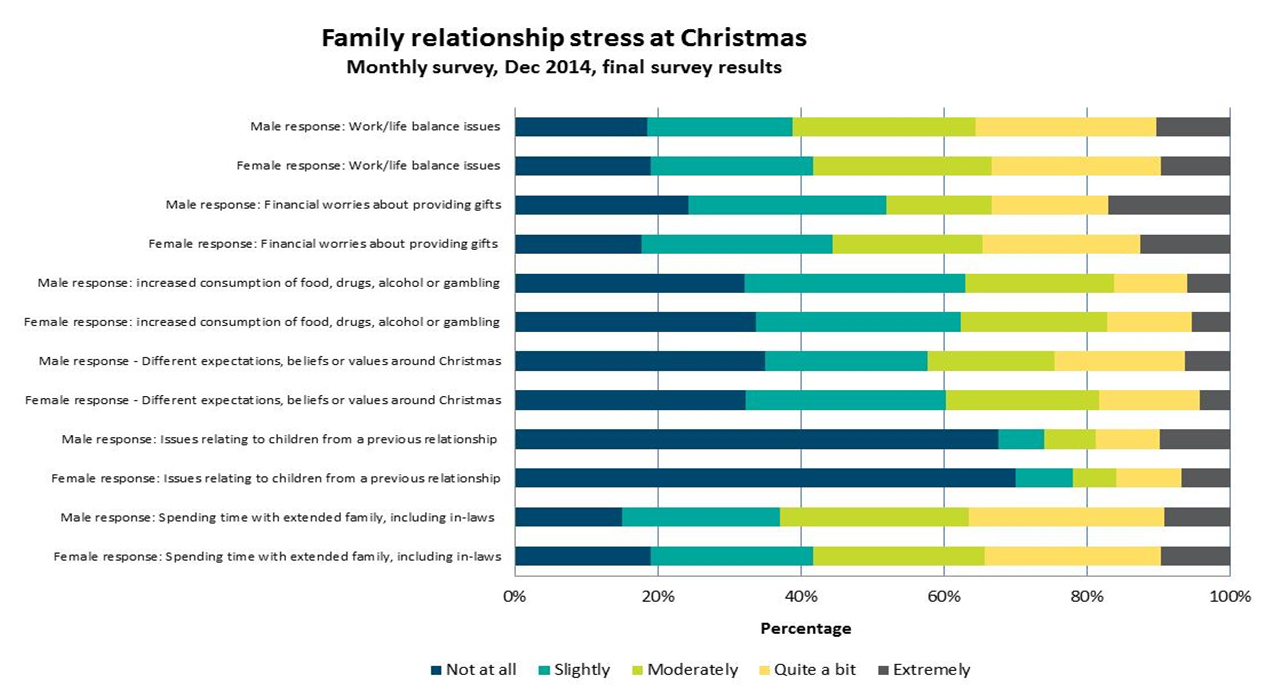For some people the Christmas period can be a time of high stress. While for many families, Christmas is a time for celebration, relaxing and holidays, it is also the most likely time of the year for many people to experience anxiety and depression, particularly those who are divorced, have experienced a death in the family or are socially isolated. People can also feel increased financial pressure from the costs of buying gifts, entertaining and holidays, and there can be added strain from spending time with family members. For those people with complex family structures, Christmas can present even greater challenges.
Introduction
For some people the Christmas period can be a time of high stress. While for many families, Christmas is a time for celebration, relaxing and holidays, it is also the most likely time of the year for many people to experience anxiety and depression, particularly those who are divorced, have experienced a death in the family or are socially isolated. People can also feel increased financial pressure from the costs of buying gifts, entertaining and holidays, and there can be added strain from spending time with family members. For those people with complex family structures, Christmas can present even greater challenges.
Studies conducted over the past decade confirm a range of negative effects on health and wellbeing associated with the Christmas period, including a spike in death rates around Christmas. However, while there is a greater chance of dying on Christmas Day, the day after Christmas or New Year’s Day than any other single day of the year, contrary to popular belief, rates of suicide do not increase at Christmas time. Higher death rates at Christmas have been associated with disease and natural causes, with research suggesting that higher death rates may be due to stress and loneliness exacerbating existing conditions and people being slower to seek medical treatment in the holiday period (APPC, 2010).
While preparing for Christmas may be stressful in itself, factors commonly associated with poor mental health at other times of the year are also more prevalent in the Christmas period. These include relationship breakdown, workplace stress, and financial pressures (Hawton, 1997; NMHC, 2013).
In December 2014, Relationships Australia asked visitors to our website to participate in a two‑minute survey that asked them about their experience of stress at Christmas time. Respondents were asked to report on a five-point scale (not at all, slightly, moderately, quite a bit, extremely) how much a selection of factors commonly associated with Christmas stress impacted on their family relationships.
Survey Results Analysis
Around 1290 people responded to Relationships Australia’s online survey in December, 2014. Similar to the October and November online surveys, almost 80 per cent of respondents identified as female, with women outnumbering men in every age group (see figure below). Around 90 per cent of survey respondents were aged between 20-59 years, with more than forty per cent of survey responses collected from women aged between 30-49 years.
The demographic profile of survey respondents remains consistent with our expectations of the groups of people that would be accessing the Relationships Australia website.

For the purposes of this report, family relationships were considered to be highly negatively affected if survey respondents reported that their family relationships were ‘extremely’ negatively affected or these relationships were affected ‘quite a bit’. The results were examined separately for each of the six factors captured by the survey questions (see figure below).
Around one-third of male and female survey respondents indicated that their family relationships were highly negatively affected at Christmas due to work-life balance factors (men 36%, women 33%). Similarly, one‑third of people responding to the monthly survey reported that their family relationships were highly negatively affected due to financial worries at Christmas (men 33%, women 35%).
When asked about the effects of increased consumption of food, drugs, alcohol or gambling on their family relationships at Christmas, around 16 per cent of men and women reported that their family relationships were highly negatively affected. Around one-sixth of women (18%) also reported their family relationships were highly affected by different expectations, beliefs or values around Christmas, while one-quarter of men (25%) reported that their family relationships were highly affected due to this factor.
Around one-fifth of respondents reported that their family relationships were highly affected by issues relating to children from previous relationships at Christmas. Given that this question is likely to have lower relevance to all survey respondents than other questions, this result is indicative of a high rate of family relationship stress at Christmas for blended and/or separated families.
The largest proportion of men responding to the monthly online survey reported negative effects on family relationships related to spending time with extended family, including in-laws (37%). Around one-third (34%) of women also reported that their family relationships were highly affected by spending time with extended family at Christmas, similar to their reports of work/life balance and financial issues.

References
Hawton, K. (1997). Attempted suicide. In Cognitive Behaviour Therapy: Science and Practice (eds D. Clark and C. Fairburn), pp. 285-312. Oxford: Oxford University Press.
Hawton, K. (2000). Sex and suicide: Gender differences in suicidal behaviour, British Journal of Psychiatry, 177:484-485.
National Mental Health Commission (NMHC). 2013: A contributing Life, the 2013 National Report Card on Mental Health and Suicide Prevention. Sydney: NMHC.
Phillips, D.I., Barker, G.E, Brewer, K.M. (2010). Christmas and New Year as risk factors for death. Soc Sci Med. Oct;71(8):1463-71. doi: 10.1016/j.socscimed.2010.07.024. Epub 2010 Aug 5.
The Annenberg Public Policy Center (APPC). (2010). The holiday-suicide link: The myth persists. The Annenberg Public Policy Center (producer). Accessed at http://www.annenbergpublicpolicycenter.org/Downloads/Releases/ACI/Holiday%20Suicide%20release%202010.pdf.
